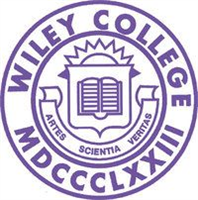What do they do?
Maintain order and protect life and property by enforcing local, tribal, state, or federal laws and ordinances. Perform a combination of the following duties: patrol a specific area; direct traffic; issue traffic summonses; investigate accidents; apprehend and arrest suspects, or serve legal processes of courts. Includes police officers working at educational institutions.
Also known as:
Campus Police Officer, Canine Handler (K-9 Handler), Deputy, Deputy Sheriff, Highway Patrol Officer, Law Enforcement Officer, Officer, Patrol Deputy, Patrol Officer, Patrolman, Peace Officer, Police Corporal, Police Officer, Police Patrol Officer, Public Safety Officer, School Resource Officer (SRO), Sheriff's Deputy, State Trooper
-
3.2%
Change
Ranks #47 in job growth rate1,890Job Openings
Ranks #12 in net job growth
-
Monroe College
Bronx, NY
-
Missouri Southern State University
Joplin, MO
-
American InterContinental University
Chandler, AZ
-
Eastern Gateway Community College
Steubenville, OH
-
Ferris State University
Big Rapids, MI
Looking for colleges that offer a specific major? Use the College Match Tool to find your best-matched schools and discover your estimated Net Price!
- Doctorate or Professional Degree (1%)
- Master's degree (7%)
- Bachelor's degree (33%)
- Associate's degree (17%)
- Some college, no degree (29%)
- High school diploma equivalent (12%)
- Less than high school diploma (1%)
Most Popular Majors that prepare Police and Sheriff's Patrol Officers
-
#1
-
Degrees Granted
7,363
-
Female Students
3,340
-
Male Students
4,023
-
Median Starting Salary
$40,800
-
-
#2
-
Degrees Granted
18
-
Female Students
12
-
Male Students
6
-
Median Starting Salary
$40,800
-
-
#3
-
Degrees Granted
9
-
Female Students
4
-
Male Students
5
-
Median Starting Salary
$40,800
-
People in this career often have these skills:
- Active Listening - Giving full attention to what other people are saying, taking time to understand the points being made, asking questions as appropriate, and not interrupting at inappropriate times.
- Speaking - Talking to others to convey information effectively.
- Social Perceptiveness - Being aware of others' reactions and understanding why they react as they do.
- Critical Thinking - Using logic and reasoning to identify the strengths and weaknesses of alternative solutions, conclusions, or approaches to problems.
- Active Learning - Understanding the implications of new information for both current and future problem-solving and decision-making.
- Reading Comprehension - Understanding written sentences and paragraphs in work-related documents.
- Coordination - Adjusting actions in relation to others' actions.
- Persuasion - Persuading others to change their minds or behavior.
- Judgment and Decision Making - Considering the relative costs and benefits of potential actions to choose the most appropriate one.
- Monitoring - Monitoring/Assessing performance of yourself, other individuals, or organizations to make improvements or take corrective action.
- Service Orientation - Actively looking for ways to help people.
- Negotiation - Bringing others together and trying to reconcile differences.
People in this career often know a lot about:
- Public Safety and Security - Knowledge of relevant equipment, policies, procedures, and strategies to promote effective local, state, or national security operations for the protection of people, data, property, and institutions.
- Law and Government - Knowledge of laws, legal codes, court procedures, precedents, government regulations, executive orders, agency rules, and the democratic political process.
- English Language - Knowledge of the structure and content of the English language including the meaning and spelling of words, rules of composition, and grammar.
- Psychology - Knowledge of human behavior and performance; individual differences in ability, personality, and interests; learning and motivation; psychological research methods; and the assessment and treatment of behavioral and affective disorders.
- Customer and Personal Service - Knowledge of principles and processes for providing customer and personal services. This includes customer needs assessment, meeting quality standards for services, and evaluation of customer satisfaction.
- Education and Training - Knowledge of principles and methods for curriculum and training design, teaching and instruction for individuals and groups, and the measurement of training effects.
- Telecommunications - Knowledge of transmission, broadcasting, switching, control, and operation of telecommunications systems.
- Administration and Management - Knowledge of business and management principles involved in strategic planning, resource allocation, human resources modeling, leadership technique, production methods, and coordination of people and resources.
- Administrative - Knowledge of administrative and office procedures and systems such as word processing, managing files and records, stenography and transcription, designing forms, and workplace terminology.
- Computers and Electronics - Knowledge of circuit boards, processors, chips, electronic equipment, and computer hardware and software, including applications and programming.
People in this career often have talent in:
- Oral Comprehension - The ability to listen to and understand information and ideas presented through spoken words and sentences.
- Problem Sensitivity - The ability to tell when something is wrong or is likely to go wrong. It does not involve solving the problem, only recognizing that there is a problem.
- Deductive Reasoning - The ability to apply general rules to specific problems to produce answers that make sense.
- Inductive Reasoning - The ability to combine pieces of information to form general rules or conclusions (includes finding a relationship among seemingly unrelated events).
- Oral Expression - The ability to communicate information and ideas in speaking so others will understand.
- Written Comprehension - The ability to read and understand information and ideas presented in writing.
- Speech Clarity - The ability to speak clearly so others can understand you.
- Information Ordering - The ability to arrange things or actions in a certain order or pattern according to a specific rule or set of rules (e.g., patterns of numbers, letters, words, pictures, mathematical operations).
- Near Vision - The ability to see details at close range (within a few feet of the observer).
- Far Vision - The ability to see details at a distance.
- Speech Recognition - The ability to identify and understand the speech of another person.
- Written Expression - The ability to communicate information and ideas in writing so others will understand.
- Flexibility of Closure - The ability to identify or detect a known pattern (a figure, object, word, or sound) that is hidden in other distracting material.
- Category Flexibility - The ability to generate or use different sets of rules for combining or grouping things in different ways.
- Trunk Strength - The ability to use your abdominal and lower back muscles to support part of the body repeatedly or continuously over time without "giving out" or fatiguing.
People in this career often do these activities:
- Apprehend criminal suspects.
- Maintain public order or security.
- Respond to emergencies to provide assistance.
- Prepare investigation or incident reports.
- Administer first aid.
- Investigate accidents to determine causes.
- Investigate illegal or suspicious activities.
- Maintain surveillance of individuals or establishments.
- Communicate situation details to appropriate personnel.
- Testify at legal or legislative proceedings.
- Record information about suspects or criminals.
- Maintain operational records.
- Relay information about incidents or emergencies to personnel using phones or two-way radios.
- Monitor access or flow of people to prevent problems.
- Patrol properties to maintain safety.
- Guard facilities.
- Interview people to gather information about criminal activities.
- Record crime or accident scene evidence with video or still cameras.
- Determine operational procedures.
- Investigate legal issues.
- Direct law enforcement activities.
- Escort prisoners to courtrooms, prisons, or other facilities.
- Direct vehicle traffic.
- Interview people to obtain information about actions or status of individuals.
- Detain suspects or witnesses.
- Serve court ordered documents.
- Inform the public about policies, services or procedures.
- Recommend improvements to increase safety or reduce risks.
- Locate suspicious objects or vehicles.
- Confiscate prohibited or dangerous items.
- Assist motorists or pedestrians.
- Communicate health and wellness information to the public.
- Present social services program information to the public.
This page includes data from:

 Occupation statistics: USDOL U.S. Bureau of Labor Statistics Occupational Employment Statistics
Occupation statistics: USDOL U.S. Bureau of Labor Statistics Occupational Employment Statistics









